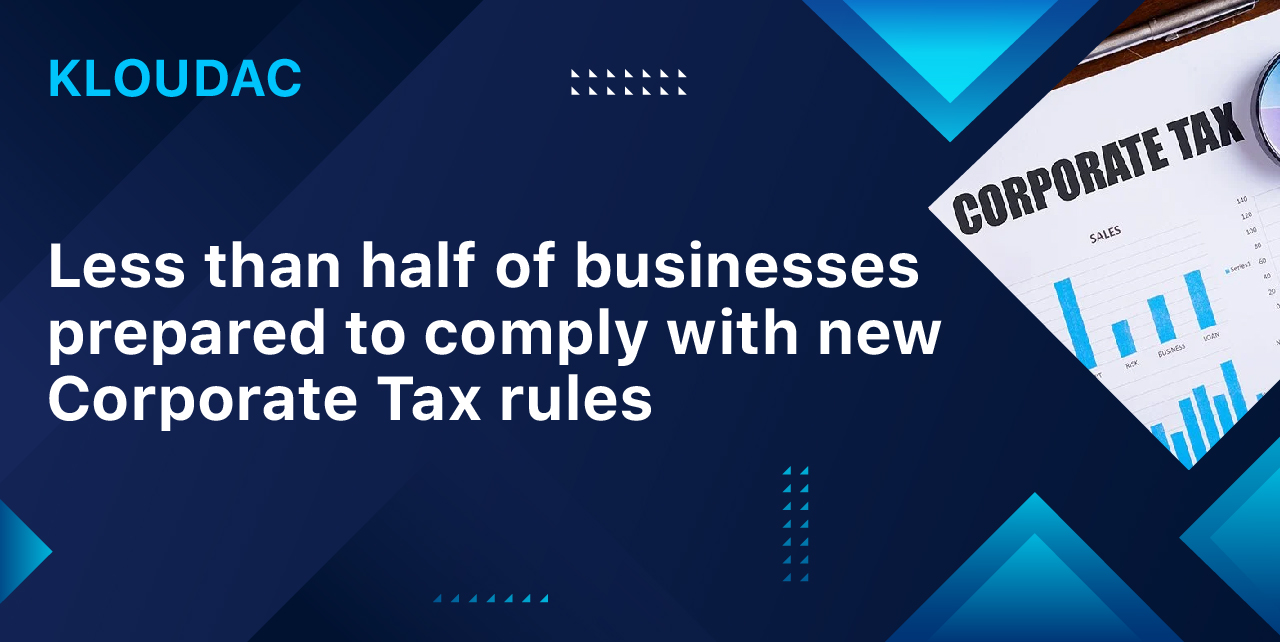As the UAE’s economic landscape continues to evolve, new challenges have emerged for businesses operating within its borders. One of the most significant shifts is the introduction of the Corporate Tax Law, a bold move by the government to diversify revenue sources and promote sustainable growth. However, recent reports indicate that less than half of businesses in the UAE are prepared to comply with these new tax regulations, signaling a potential storm on the horizon. In this blog, we will delve into the implications of the Corporate Tax Law, explore the reasons behind the lack of preparedness, and shed light on the importance of timely compliance for businesses seeking long-term success in the UAE.
Understanding the Corporate Tax Law
The Corporate Tax Law marks a historic turning point in the UAE’s tax policy. Previously, the country had enjoyed a tax-free status for companies and individuals, drawing in businesses from across the globe. However, with a vision to enhance fiscal sustainability and reduce reliance on oil revenues, the UAE government took the bold step of implementing corporate taxation.
Under this law, companies operating in the UAE are subject to a flat corporate tax rate, impacting both local and foreign entities. While the rate remains moderate compared to global standards, its implementation requires businesses to reassess their financial strategies and reporting procedures.
Reasons Behind Lack of Preparedness
Despite the government’s proactive approach to communicating the new tax regime, a significant portion of businesses appear unprepared for compliance. Several factors contribute to this hesitancy:
- Lack of Awareness: Some businesses may not fully grasp the implications and requirements of the new Corporate Tax Law, underestimating its impact on their financial operations.
- Complexity: Tax regulations can be intricate and daunting, particularly for small and medium-sized enterprises (SMEs) with limited resources to navigate the complexities.
- Reluctance to Adapt: Long-established companies accustomed to a tax-free environment might resist adopting new financial practices, making compliance a challenging adjustment.
- Financial Constraints: Amid economic uncertainties, businesses may face financial constraints, making it difficult to invest in the necessary infrastructure to comply with the new law.
- Inadequate Guidance: Some businesses may be seeking additional clarity and guidance from authorities, leading to delays in preparations.
The Importance of Timely Compliance
While the introduction of the Corporate Tax Law may present initial challenges, businesses must recognize its long-term benefits for both the UAE economy and their own sustainability:
- Contributing to the UAE’s Growth: Compliance with corporate tax fosters economic development, enabling the government to invest in infrastructure, healthcare, education, and other crucial sectors.
- Global Reputation: UAE businesses that comply with international tax standards gain credibility on the global stage, attracting international investors and partnerships.
- Mitigating Penalties: Non-compliance can lead to severe penalties, adversely affecting a company’s financial health and reputation.
- Transparency and Governance: Embracing tax regulations signifies a commitment to transparency and good governance, vital for sustainable business practices.
- Adapting for Long-Term Success: Companies that embrace change and adapt to the new tax landscape are better positioned to thrive in an evolving global market.
KLOUDAC Accounting Firm Dubai, UAE
The UAE’s introduction of the Corporate Tax Law signifies a pivotal moment in the country’s economic journey. While some businesses may find it challenging to adapt, timely compliance is not only necessary to meet legal obligations but also a strategic move toward long-term success. KLOUDAC can assist you with Corporate tax rules. The corporate tax system supports the UAE’s sustainable development goals, enhances the country’s global reputation, and reinforces a culture of transparency and responsible governance. Businesses should view this change as an opportunity to evolve, modernize their financial practices, and contribute to the flourishing UAE economy. Proactivity and preparation will pave the way for a brighter future, where both businesses and the nation can thrive hand in hand.
